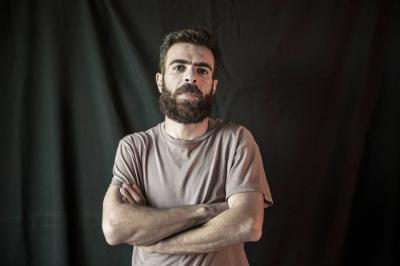
Addameer-Ramallah: The Israeli Military Court decided, on 31 March 2019, to extend the detention of Hafez Omar, for an additional five days until Thursday, 4 April 2019. Addameer was able to visit Hafez Omar after the occupation authorities banned him from meeting with a lawyer for 20 days, since his arrest on 13 March 2019. Hafez remains under interrogation, being subjected to interrogation sessions for long hours. He has also been transferred between more than one interrogation centers. The Occupation authorities allowed Hafez to meet with Addameer’s lawyer, for the first time, a day after his detention was renewed, while he was still banned from lawyer visits. This is a fundamental breach of the guarantee of a fair trial and the right of the detainees to a legal counsel in the pre-trial stage.
Addameer confirmed that the interrogation with Hafez Omar is based on his artworks and publications on social media, especially those in support of the rights of Palestinian prisoners. This, in addition, is a clear and obvious violation of the right of freedom of expression. Hafez Omar’s arrest is a verification of the Occupation Forces’ systematic targeting of human rights activists in general and, of prisoners’ rights activists in particular. This is part of the systematic suppression that the Israeli occupation practices to undermine the Palestinian society’s capability to expose the ongoing violations, which is a basic human right guaranteed by international law.
The right to freedom of expression is protected under international humanitarian law and international human rights law. A right which is particularly preserved under the Fourth Geneva Convention, applicable in the Occupied Palestinian Territory, along with the International Covenant on Civil and Political Rights, which the occupying state signed in 1991. Addameer condemns the arrest of Hafez Omar and calls on all international organizations and contracting states to pressure the Occupying Power to stop targeting human rights defenders, activists, and advocates as well as to ensure their right to work and expression as protected persons under international law.